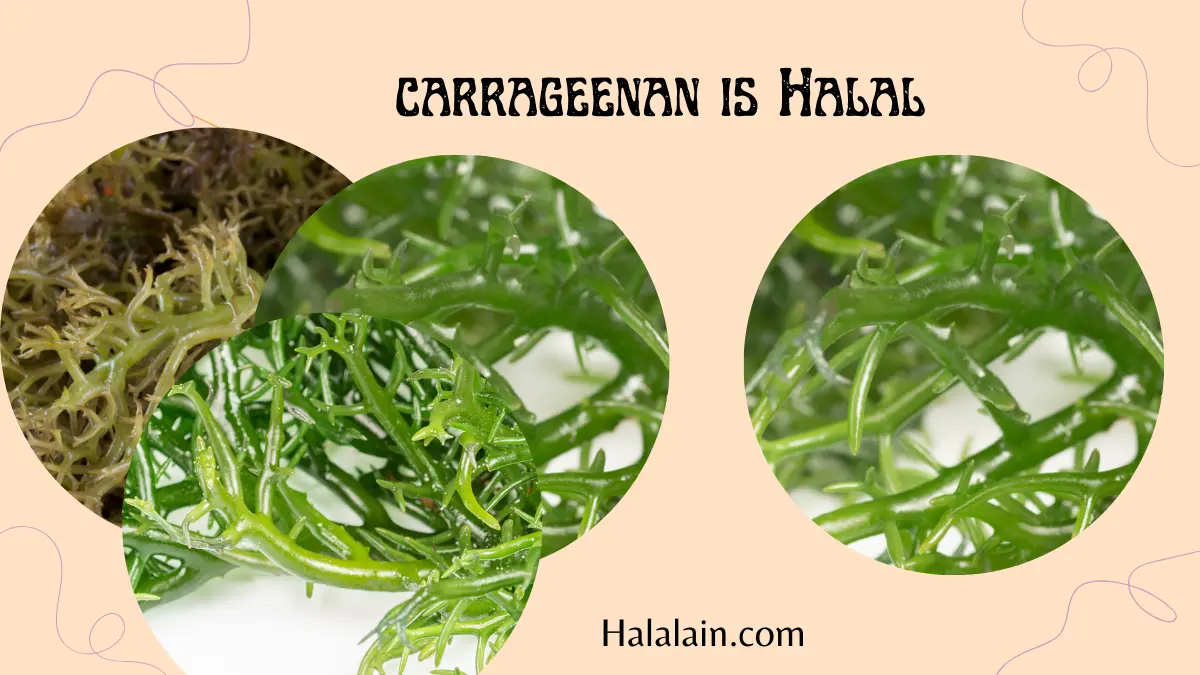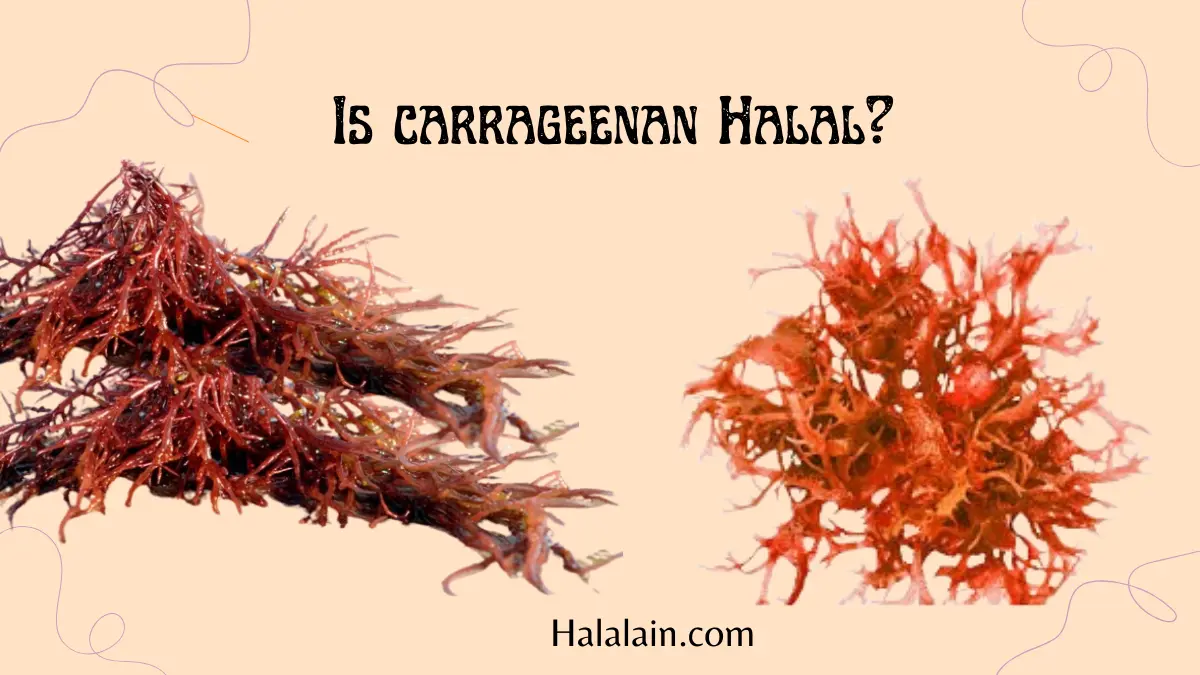In the realm of halal dietary practices, Carrageenan has emerged as a topic of scrutiny and debate among consumers seeking to adhere to Islamic principles in their food choices. This comprehensive analysis aims to provide an in-depth exploration of Carrageenan’s halal status, delving into its production processes, Islamic jurisprudence, and practical implications for consumers.
Short answer
Yes, carrageenan is halal. Because this seafood is produced naturally. They do not match the properties of haram foods or the properties of these foods that are forbidden in the Qur’anic hadith. And the basic feature of Islamic food policy is that all food in the world is halal, unless it is clearly declared haram. So natural carrageenan is halal.
But if carrageenan is mixed with any other ingredient or food, then whether it is halal or not depends on the food it is mixed with. So I can’t say exactly whether it will be halal if other ingredients are mixed with it. If you want to know its halal status, you have to compare it with the next parts of the post.
What is Carrageenan?
Carrageenan is a natural food ingredient derived from red seaweed. It is commonly used as a thickening, stabilizing, and gelling agent in a wide range of food products, including dairy products (such as ice cream and yogurt), plant-based milk alternatives, processed meats, sauces, and desserts.
Carrageenan comes in different forms, including refined and semi-refined varieties, and it is typically extracted through a process involving water extraction and filtration.
Carrageenan is valued for its ability to improve texture, mouthfeel, and shelf stability in food products. It is often preferred over other thickeners and stabilizers because it is plant-based and has a neutral taste.
As well as carrageenan has been used for centuries in traditional medicine for its potential health benefits, such as its anti-inflammatory and immune-boosting properties.
Origin and Extraction Process
Carrageenan, a polysaccharide derived from red seaweeds, undergoes a meticulous extraction process to harness its unique gelling and thickening properties. Harvested primarily from species such as Chondrus crispus and Eucheuma cottonii, Carrageenan extraction involves drying and milling the seaweed into a fine powder before undergoing further processing.

Versatile Applications in the Food Industry
Renowned for its multifaceted functionality, Carrageenan serves as a cornerstone ingredient in various food products. From enhancing the texture and stability of meat items to imparting a creamy consistency to dairy products and desserts, Carrageenan’s applications span a diverse range of culinary realms.
Evaluating Halal Compliance
Production Processes and Ingredients
Central to the determination of Carrageenan’s halal status are the methodologies employed during its production and processing phases. While Carrageenan can be crystallized using different substances, including Potassium Chloride (KCl) or alcohol-based solvents such as Ethyl Alcohol or Isopropyl Alcohol, the choice of crystallization agent holds significant implications for its halal certification.
Halal Criteria and Thresholds
Islamic dietary laws prescribe stringent criteria for determining the halal status of food products. Carrageenan is deemed halal if it complies with these criteria, which include the absence of alcohol-derived ingredients and adherence to principles of purity and wholesomeness.
Islamic Perspective: Theological Foundations and Interpretations
Quranic Principles and Prohibitions
Islamic teachings provide a robust framework for evaluating the permissibility of food items, emphasizing principles of purity, harm avoidance, and divine guidance. Quranic verses underscore the legitimacy of consuming resources from the sea for sustenance while prohibiting substances deemed impure or harmful.
Scholarly Interpretations and Fiqh Rulings
Drawing upon centuries of Islamic jurisprudence, scholars have offered nuanced interpretations of halal dietary laws and their application to contemporary food practices. Fiqh rulings pertaining to Carrageenan production and consumption provide valuable insights into the compatibility of this ingredient with Islamic dietary guidelines.
Fiqh and Contemporary Perspectives
Transformative Processes: Istihalah and Istihlak
Islamic jurisprudence offers mechanisms for transforming substances of questionable origin into permissible entities through processes such as istihalah (transformation) and istihlak (absorption). Carrageenan’s production, if conducted in accordance with these principles and devoid of residual alcohol content, aligns with halal standards.
Ethical and Consumer Considerations
Beyond legalistic interpretations, ethical considerations play a pivotal role in assessing the halal status of food products. Transparency in labeling, ethical sourcing practices, and consumer awareness initiatives contribute to fostering trust and confidence in halal-certified products.
Conclusion
Carrageenan’s halal status represents a convergence of theological principles, scientific processes, and consumer preferences. By upholding principles of transparency, adherence to halal criteria, and ethical responsibility, consumers can make informed choices that resonate with their religious convictions while embracing culinary diversity.
References and Further Exploration
For individuals seeking further clarification on halal food principles and rulings, a wealth of resources and references are available. Consultation with knowledgeable scholars, exploration of authoritative texts on Islamic jurisprudence, and engagement with halal certification bodies can empower consumers to navigate the complexities of halal dietary choices with confidence and clarity.
Acknowledgments: Gratitude and Recognition
Acknowledgment of the contributions of scholars, experts, and organizations dedicated to promoting halal awareness and compliance underscores the collaborative effort in advancing halal certification standards and fostering a culture of informed consumerism.

